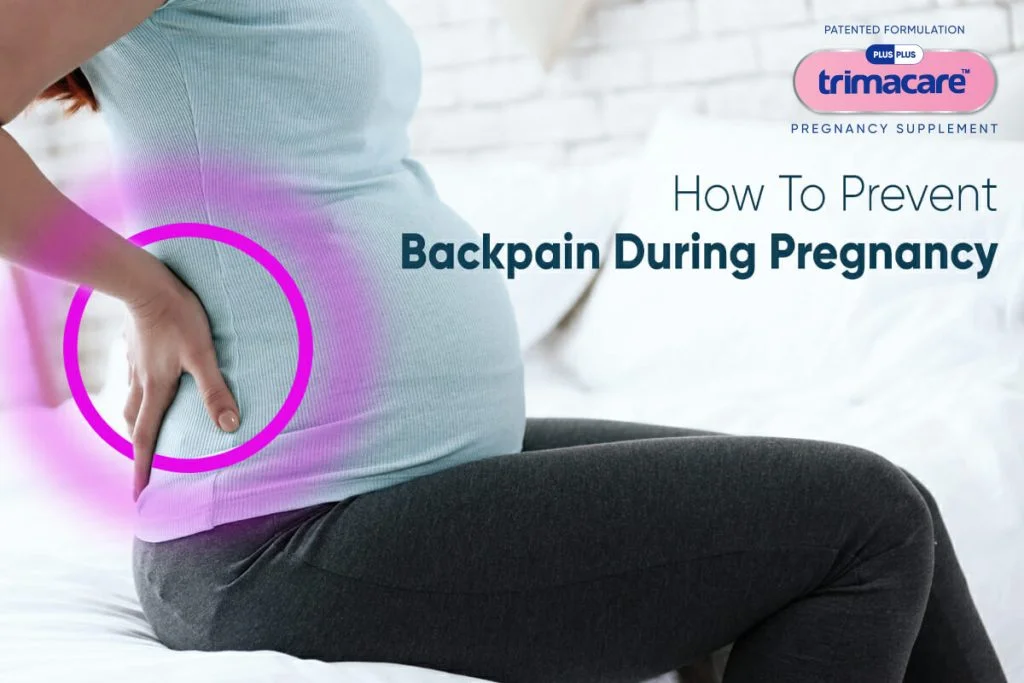Back pain in pregnancy is one of the most frequent complaints for pregnant women. It is estimated that almost 50-70% of pregnant women around the world experience some level of back discomfort. Most of the pains
Cultural practices, dietary deficiencies and heavy domestic tasks are some of the causes of back pain in pregnant women.
In Indian pregnant women, cultural practices, dietary deficiencies, and heavy domestic tasks can cause this ache even severe back pain.
While it is a normal aspect of pregnancy, addressing back pain early is a key to a smoother, healthier and more comfortable pregnancy. If left unchecked, it can disrupt daily activities, sleep and overall wellbeing. Most pregnancy-related back pain can be effectively managed and even prevented with the right solution.
Why is back pain so prevalent during pregnancy?
1. Hormonal Changes
Your body secretes a hormone called relaxin during pregnancy that relaxes ligaments and joints for childbirth. Though necessary, this also reduces the stability within the spine and pelvis and causes lower back pain in pregnancy.
2. Weight Gain and Greater Load
A normal pregnancy entails weight gain, but the added weight puts additional pressure on your back and spine muscles, leading to discomfort, especially when pregnancy progresses.
3. Postural Changes
As your baby bump becomes larger, your center of gravity moves forward. To balance this, many women tend to lean back, which tightens up the curve in the lower back and overloads muscles.
4. Weakened Abdominal Muscles
Abdominal stretched muscles during pregnancy diminish core support, compelling the back muscles to work more and causing back pain in pregnancy.
Most Common causes of pregnancy back pain
Here are the most common causes of back pain during pregnancy:
- Lower back strain- This is usually the result of bad posture with extra weight. Sitting in incorrect position or standing for extended periods puts additional strain on the lower back.
- Pelvic Girdle Pain (PGP) and Sacroiliac joint pain – Loose joints in the pelvis can cause PGP, a stabbing or hurting pain around the lower back and hips.
- Sciatica- An expanding uterus can press on the sciatic nerve, leading to a shooting pain from the back to the legs.
- Bad posture and sitting for long periods- Sagging, long periods at a desk, or standing for prolonged periods without support is the cause of back pain during pregnancy.
- Sleeping positions- Sleeping on your back can exacerbate back strain and insufficient pillow support may make discomfort worse.
- Lifting heavy objects- Lifting babies or heavy shopping incorrectly can cause abrupt muscle strain.
- Pre-pregnancy unfitness – Women entering pregnancy with poor core and back muscles may be more prone to lower back pain in pregnancy.
Specific Risk Factors for Indian Pregnant Women
For Indian pregnant women, back pain is usually aggravated by:
- Cultural Habits- Sitting on the floor, squatting for household work, or bending over without support puts an extra load on the back.
- Ergonomic Gaps- Most Indian homes, particularly in rural or low-income communities, do not have supportive furniture, leading to unfavourable body posture.
- Nutritional Deficiencies- Lack of calcium and magnesium in pregnancy, combined with vitamin D, softens bones and muscles, leading to an increased risk of back pain.
- Household Responsibilities- Even during the third trimester, most women continue to perform heavy domestic work, cooking for joint families or fetching water.
- Improper footwear- Sleek, non-supportive flat slippers or sandals without shock absorption can change gait and put pressure on the back.
Safe and Effective Ways for pregnancy back pain relief
Exercise and Prenatal Yoga- Gentle safe exercises during pregnancy such as walking, pelvic tilts, and prenatal yoga for back pain build muscles and enhance flexibility. Most Indian women follow adapted yoga exercises under professional supervision.
Good Posture- Walk and stand straight with your shoulders back. While sitting, place a cushion in your lower back and sit flat on the floor with your feet.
Warm Compress- A warm bath or a warm water bag will ease sore muscles and reduce pregnancy back pain.
Use Maternity Belts- Support belts assist in redistributing weight and alleviating stress on the lower back.
Physiotherapy or Massage- Prenatal physiotherapy sessions or soothing massages by qualified experts can relieve tension.
Footwear and Sleep- Wear cushioned, supportive shoes. Sleep on your side with a pillow between knees for spine alignment.
Cushions for Sitting- Utilize rolled towels or lumbar cushions for additional support for the back, particularly when sitting for long periods.
Role of Prenatal Supplements in Minimizing Back Pain
Nutritional care has a major role in pregnancy pain management.
Calcium, Magnesium, and Vitamin D- Proper intake strengthens the muscles and bones. Lack of it can exacerbate muscle cramps and back pain.
Trimacare for Pregnancy
Pregnancy supplements such as Trimacare, specifically formulated for Indian pregnant women, offer trimester-wise nutrition, including essential calcium and magnesium in pregnancy, along with Vitamin D, promoting overall musculoskeletal health.
The bowel regulator and magnesium in Trimacare, eliminate the uncomfortable pregnancy symptoms of the third trimester of pregnancy. The magnesium in Trimacare 3 prenatal tablet also protects the foetus against growth retardation and maternal hypertension. Trimacare prenatal multivitamin also treats leg cramps induced during pregnancy in the mother. Therefore, Trimacare prenatal vitamin is perfect for treating back pain in all three trimesters during pregnancy.
Preventive Tips for Coping with Back Pain
- Start Exercises Early: Start light strengthening exercises even before pregnancy.
- Avoid Sudden Heavy Lifting: Practice good technique and get assistance.
- Ergonomic Adjustments: Spend money on supportive chairs and don’t sit on hard floors for an extended period.
- Take Breaks: Don’t stand or sit for long periods; change positions every 30-40 minutes.
Conclusion
Pregnancy back pain is prevalent but not unavoidable. Paying attention to your body, adopting minor lifestyle modifications, and taking in proper nutrition can go a long way towards improving comfort. Don’t be afraid to seek assistance—be it from family members for household work, or from experts for pregnancy back pain alleviation.
By pairing prenatal yoga for back pain, safe pregnancy exercises, ergonomic care, and nourishing dieting with pregnancy supplements India such as Trimacare for pregnancy, you can manage these months with ease and happiness.
FAQs
Q1. Why is pregnancy back pain so prevalent?
During pregnancy, hormonal fluctuations (such as elevated relaxin levels), weight gain, and a change in your center of gravity all put additional stress on your spine and back muscles. These factors frequently cause lower back pain during pregnancy, particularly in the third trimester.
Q2. What are the most frequent reasons for back pain in pregnant women?
Common causes are poor posture, weak abdominal muscles, pelvic girdle pain, sciatica through nerve compression, prolonged standing or sitting, sleeping in a wrong position, and bending to lift heavy objects. For pregnant Indian women, other causes such as squatting, floor sitting, and non-supportive footwear can be added.
Q3. What can I do to get pregnancy back pain relief at home?
You can try prenatal yoga for back pain, warm compresses, the use of a maternity belt, sleeping on your side with a pillow between your knees, and good posture. The addition of safe exercises during pregnancy will make your core muscles stronger and minimize discomfort.
Q4. Can pregnancy back pain be caused by a deficiency in calcium or magnesium?
Yes, pregnancy deficiency in calcium and magnesium can cause weakening of the muscles and bones, making you prone to back pain. Right pregnancy supplements in India, such as Trimacare for pregnancy, nourish your musculoskeletal system.
Q5. At what point do I need to go see a doctor for back pain during pregnancy?
Seek advice from your doctor if your back pain is bad, persistent, or occurs along with vaginal bleeding, fever, or numbness in your legs. These may be symptoms of conditions requiring urgent medical consultation.
Q6. How do I avoid having back pain during pregnancy?
Initiate gentle exercises early in pregnancy, do not lift anything heavy suddenly, keep ergonomic posture while working or resting, use cushioned shoes, and get adequate calcium, magnesium, and Vitamin D from food or supplements.
A Certified Nutritionist with a rich healthcare background in health journalism, the author has immense experience in curating reader-friendly, engaging, and informative healthcare blogs to empower readers to make informed pregnancy-related decisions.













